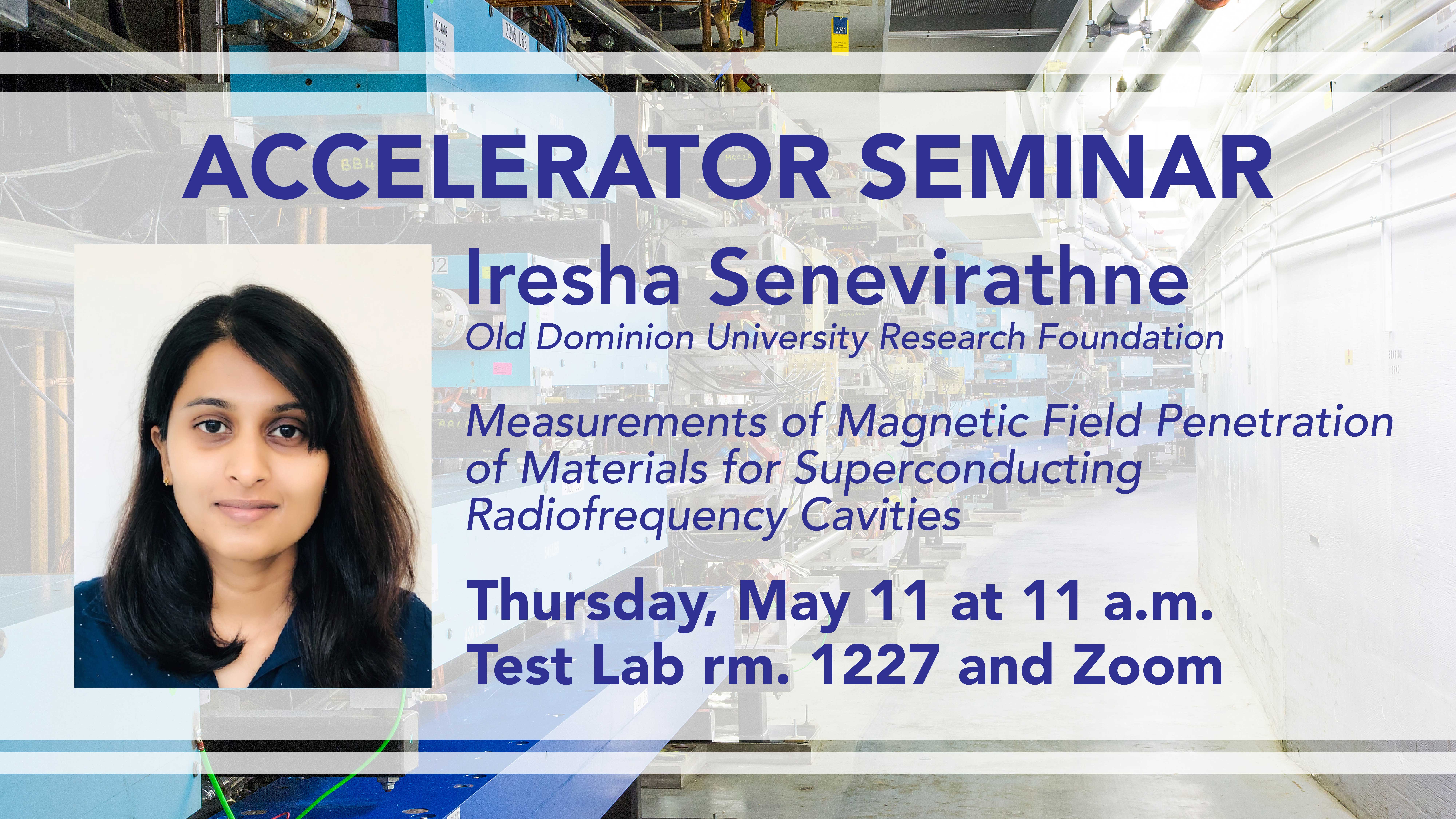TL 1227
Speaker: Iresha Senevirathne

Title: Measurements of Magnetic Field Penetration of Materials for Superconducting Radiofrequency Cavities
Abstract: Superconducting Radio Frequency (SRF) cavities used in particle accelerators are typically formed from or coated with superconducting materials. Currently high purity niobium is the material of choice for SRF cavities which have been optimized to operate near their theoretical field limits. This brings about the need for significant R&D efforts to develop next generation superconducting materials which could outperform Nb and keep up with the demands of new accelerator facilities. To achieve high quality factors and accelerating gradients, the cavity material should be able to remain in the superconducting Meissner state under high RF magnetic field without penetration of quantized magnetic vortices through the cavity wall. Therefore, the magnetic field at which vortices penetrate in a superconductor is one of the key parameters of merit of SRF cavities. Techniques to measure the onset of magnetic field penetration on thin film samples need to be developed to mitigate the issues with the conventional magnetometry measurements which are strongly influenced by the film orientation and shape and edge effects. The applied magnetic field is also needed to be parallel to the one side of the superconductor to resemble the magnetic field profile at the surface of the SRF cavities operating at fundamental accelerating mode. In this work we report the development of an experimental setup called Magnetic Field Penetration (MFP) magnetometer to measure the field of full flux penetration through bulk, thin films and multilayered superconductors. Our system combines a small superconducting solenoid which can generate the magnetic field up to 500 mT at the sample surface and three Hall probes to detect the full flux penetration through the planner superconductor with 2-inch diameter. This setup was used to study alternative materials which could potentially outperform niobium, as well as SIS multilayer coatings on niobium.
https://www.jlab.org/accelerator/seminars

